Army Officer vs IAS Officer: Which is Best For You?
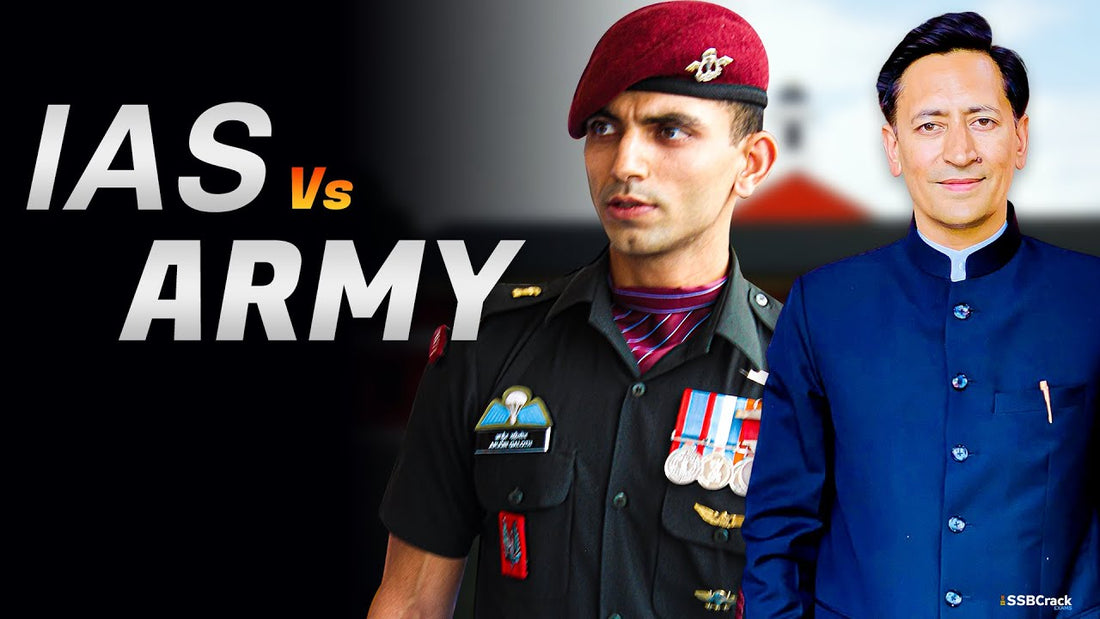
When contemplating a career that carries the gravitas of leadership and service, two prominent paths emerge for young aspirants in India: becoming an Army officer or an IAS (Indian Administrative Service) officer. Each role offers distinct challenges and rewards that not only shape an individual's professional trajectory but also contribute significantly to the nation’s fabric. With students and young professionals often torn between these two prestigious professions, it becomes imperative to delve into their respective job roles, responsibilities, selection processes, and broader implications. This article aims to provide a comprehensive analysis to assist you in making an informed career decision.
Historical Context
The Indian Army has a rich history, evolving from the colonial military forces to one of the largest and most respected armies in the world today. The role of Army officers has been critical in maintaining national security and integrity since India's independence in 1947. Conversely, the IAS has its roots in the British colonial administration, originally known as the Indian Civil Service (ICS), and has transformed into a crucial pillar of Indian governance. The roles of both professions have evolved over time, reflecting changes in societal needs, governance, and security challenges.
SSB Interview Books Power Pack: 4 Must Read Books for Defence Aspirants
Rs. 1,760.00
Sale price
Rs. 1,399.00
Let's Crack SSB Interview Book [Paperback]
Rs. 390.00
Sale price
Rs. 360.00
Breaking The Code of SSB Psychological Tests Book - SSB Interview (TAT/WAT/SRT/SD)
Rs. 390.00
Sale price
Rs. 360.00
OIR Test & PPDT Book - SSB Interview Screening Test - Stage 1 Testing
Rs. 490.00
Sale price
Rs. 375.00
Job Roles and Responsibilities
Army Officer
Army officers occupy a unique space in society as individuals tasked with defending the country’s sovereignty and upholding national security. Their responsibilities extend beyond mere combat; they involve:
- Leadership: Leading a team of soldiers during operations, training, and in times of peace.
- Strategic Planning: Formulating and executing plans which align with national security objectives.
- Operational Readiness: Ensuring troops and equipment are ready for deployment at a moment's notice.
- Crisis Management: Addressing unforeseen circumstances such as natural disasters or conflicts.
For instance, during the 2020 pandemic, Army officers were deployed to maintain order and assist in logistics, showcasing their versatility beyond traditional military roles.
IAS Officer
In contrast, IAS officers play a pivotal role in the governance and administration of India. Their responsibilities encompass:
- Policy Implementation: Ensuring that government policies and programs are effectively executed.
- Public Administration: Overseeing various government departments and their functioning.
- Law and Order Maintenance: Working with law enforcement agencies to ensure safety in their jurisdiction.
- Resource Management: Overseeing the allocation and utilization of public resources for development projects.
For example, during the recent push towards digital India, IAS officers have been instrumental in implementing various schemes aimed at improving digital infrastructure, thereby enhancing public service delivery.
SSB Interview Study Material 2025 [ Pack of 17 eBooks ]
Rs. 1,313.00
Sale price
Rs. 499.00
Thematic Apperception Test (TAT) Part 1 eBook [100+ Stories]
Rs. 150.00
Sale price
Rs. 139.00
SSB Lecturette Topics Part-1 eBook [100 Topics]
Rs. 149.00
Sale price
Rs. 125.00
OIR Test eBook with 20 Practice Sets - [1000+ Questions Included]
Rs. 250.00
Sale price
Rs. 199.00
Selection and Training
The pathways to becoming an Army officer and an IAS officer are distinctly different, marked by varied selection processes and training regimes.
Army Officer
- Selection Process: Most aspiring Army officers begin their journey by clearing the National Defence Academy (NDA) exam or the Combined Defence Services (CDS) exam. Suitable candidates are then called for a Services Selection Board (SSB) interview, where psychological tests, group tasks, and personal interviews gauge their leadership potential and suitability for military service.
- Training: Once selected, candidates undergo rigorous training spanning 18-24 months at institutions like the Indian Military Academy (IMA). This period is characterized by physical conditioning, tactical training, and leadership development.
IAS Officer
- Selection Process: To become an IAS officer, candidates must pass the Civil Services Examination (CSE) conducted by the Union Public Service Commission (UPSC). This multi-stage exam comprises a preliminary exam, a main examination, and a personality test (interview).
- Training: Successful candidates undergo a foundational training of about two years, starting with a year at the Lal Bahadur Shastri National Academy of Administration in Mussoorie, where they receive theoretical training in administration and governance, followed by field training in various departments.
Pay Scale and Allowances
Financial remuneration is often a significant factor influencing career choices.
Army Officer
Army officers earn a competitive salary package that includes various allowances, such as Military Service Pay (MSP). Entry-level officers, like Lieutenants, start with a pay of approximately ₹56,000 – ₹57,000 per month. Over time, as officers progress through the ranks, particularly after around 14 years of service, their pay can reach equivalent levels to civilian counterparts. For instance, after 14 years, an IAS officer's pay scale can match that of a Major General with around 33 years of service, though their status and influence differ significantly.
IAS Officer
The pay scale for IAS officers is structured and increases with seniority. An entry-level IAS officer earns around ₹56,000 but can rise substantially to over ₹2,00,000 per month at senior levels (Secretary, Chief Secretary, etc.). While they do not receive MSP, their overall benefits and pensions are considerable.
Rank Equivalence and Status
Understanding the rank equivalences and social standing between Army and IAS officers can be bewildering. While pay scales have points of comparison, the influence and decision-making authority are vastly different.
- Army Officers: The uniform commands respect and reflects discipline, bravery, and adventure. As officers move up ranks from Captain to General, the responsibilities grow more extensive, often culminating in strategic decision-making roles within the military hierarchy.
- IAS Officers: IAS officers, through their bureaucratic roles, wield significant power in shaping policies that affect millions. Their status not only comes from the rank but also from the substantial responsibilities they handle, such as managing law and order or public welfare schemes.
Recognition and Social Respect
Both professions carry a high level of respect, but the societal recognition stems from different attributes.
- Army Officers: The military embodies patriotism and courage, leading to a profound societal respect. The adrenaline and physical challenges associated with military life attract individuals with a thirst for adventure. Community events, such as Republic Day parades, exemplify the public's esteem for the armed forces.
- IAS Officers: IAS positions are typically associated with power and influence over administrative matters. They are viewed as key players in national and state governance and public service, garnering respect from government officials, business leaders, and the general populace for their roles in shaping lives through government policies.
Personal Preferences and Skills
Selecting between a career as an Army officer and an IAS officer should align with personal preferences and innate skills.
- Army Officer: If you possess physical stamina, enjoy outdoor activities, can handle high-stress situations, and have a passion for leadership, a career in the Army might be more fulfilling. The life of an Army officer demands resilience, decisiveness, and a willingness to endure physical and emotional challenges.
- IAS Officer: If your interests lie within administration, governance, and policy-making, coupled with strong communication, analytical skills, and a propensity for problem-solving, the IAS provides an avenue for impactful public service and governance.
Training and Commitment
Both careers demand incredible dedication, discipline, and commitment. The intensive training processes are designed to mold candidates into effective leaders, albeit through different mediums.
- Army Officers: The training is predominantly focused on physical prowess, tactical training, and leadership capabilities, simulating real-life battlefield scenarios. This prepares them for quick decision-making under pressure.
- IAS Officers: Their training emphasizes critical thinking, administrative skills, and public management, preparing them to deal with multifaceted governance challenges.
Challenges and Solutions
Both paths come with their challenges. Army officers often face adverse environments, both physically and psychologically. The demands of deployment and the nature of military life can strain personal relationships and health. Solutions involve organizational support systems, mental health programs, and investment in post-service opportunities.
Conversely, IAS officers grapple with bureaucratic inertia, political pressures, and the weight of public expectations. Solutions lie in streamlined processes, increased transparency, and continuous professional development and training to adapt to the evolving governance landscape.
Future Trends and Predictions
Both roles are witnessing transformations with advancements in technology and changing societal needs. The Army is increasingly integrating technology into combat and logistical strategies while focusing on cyber warfare capabilities. Meanwhile, IAS officers are adopting digital tools for governance, enhancing transparency, and improving service delivery through e-governance initiatives.
Given the dynamic global landscape, future candidates should cultivate adaptability and tech-savviness to thrive in their chosen professions.
Conclusion
Ultimately, both careers offer unique and patriotic avenues to serve India; the decision should stem from introspection about personal aspirations, values, and skills. The Army officer role appeals to those seeking adventure and camaraderie, while the IAS officer role attracts those inclined towards governance and societal development. As you weigh your options, consider not only the responsibilities and rewards associated with each career but also your inclination towards service, leadership, and the impact you wish to have on the nation.
Choosing between an Army officer and an IAS officer is not merely about prestige or pay but about fulfilling a calling that resonates with your personal ideals and professional aspirations. Embrace that journey with clarity and conviction. Whether you choose the fatigues or the bureaucratic attire, your contribution to the nation will undoubtedly be invaluable.
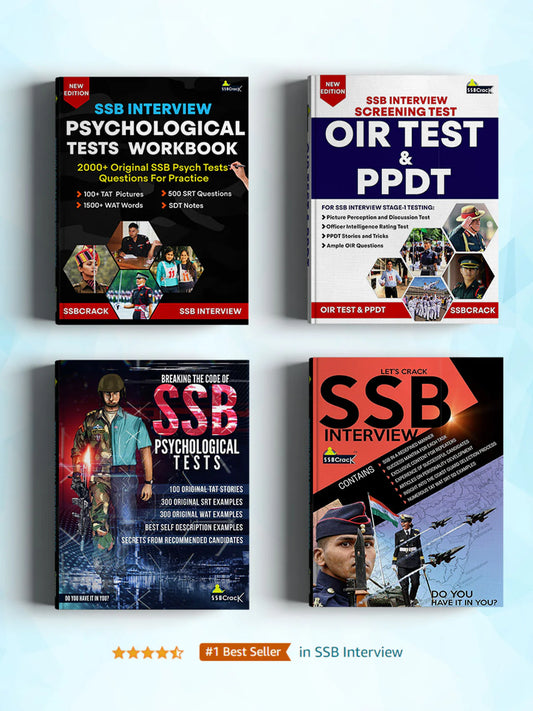
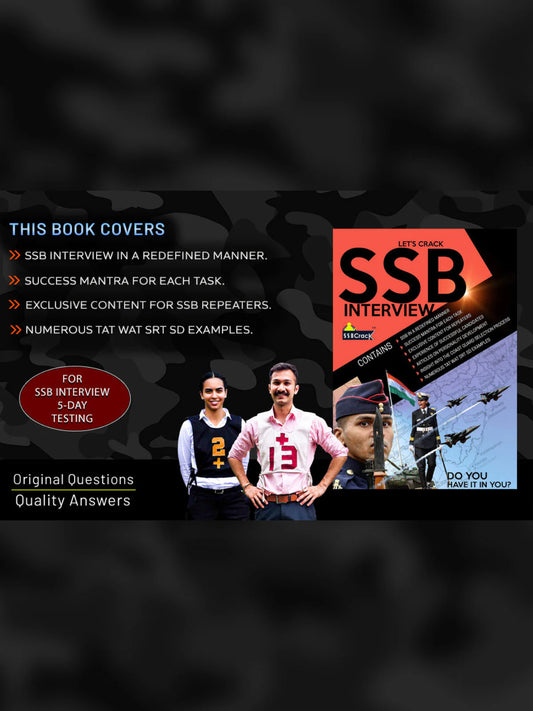
![Let's Crack SSB Interview Book [Paperback]](http://shop.ssbcrack.com/cdn/shop/files/ssb-books.webp?v=1736351621&width=533)
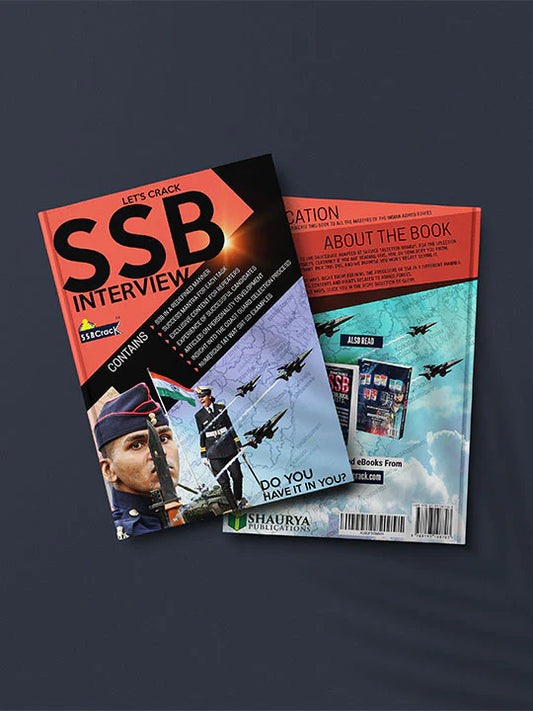


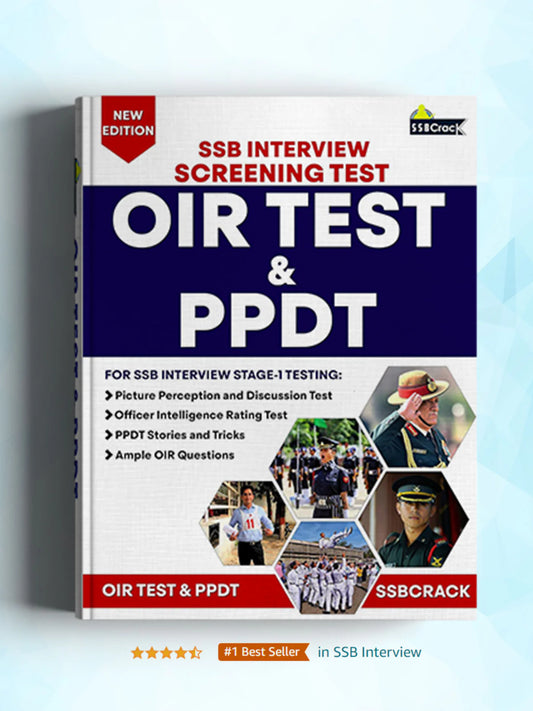



![Thematic Apperception Test (TAT) Part 1 eBook [100+ Stories]](http://shop.ssbcrack.com/cdn/shop/files/TAT-ebook-part-1-ssbcrack_051ae49c-43ea-4eb4-95c7-0fa0bfa2a639.jpg?v=1735540406&width=533)



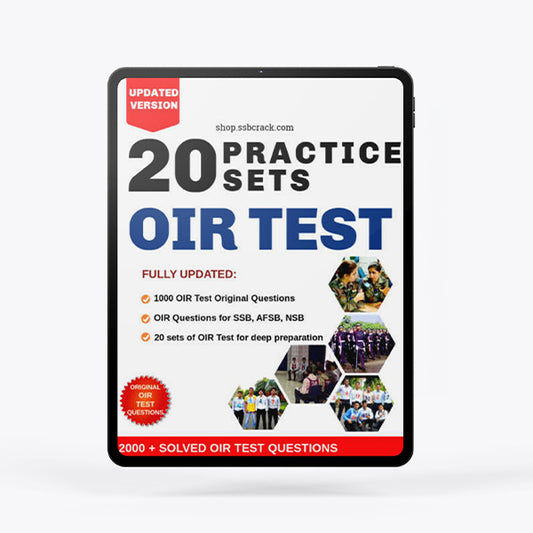





















3 comments
There is a lot of difference between IAS and an army officer.Army officer handles 1 unit and this one district.IAS officers have to handle civil matters and these are the people who make laws.Those who think that there is no corruption in the Army, if we look closely, the most corruption is in the Army. And That is not known because he stays away from the media.And if anyone speaks about these scams then they make it a matter of national security.
Army personnel are heroes of nation, IAS are as Duryodhan and as Dushasan of Mahabharat
Army Officers were most working for Nation religiously with patriotism without politics.
IAS officers also work for the Nation no dought at all but in their services they have several problems created by politicians to bend them as their personal servants and fall in corruption more.There was no chance of the Army officers to dragging on curruption by the illiterate political powers.
(Curruption created by only those uneducated politics).
Thanks.